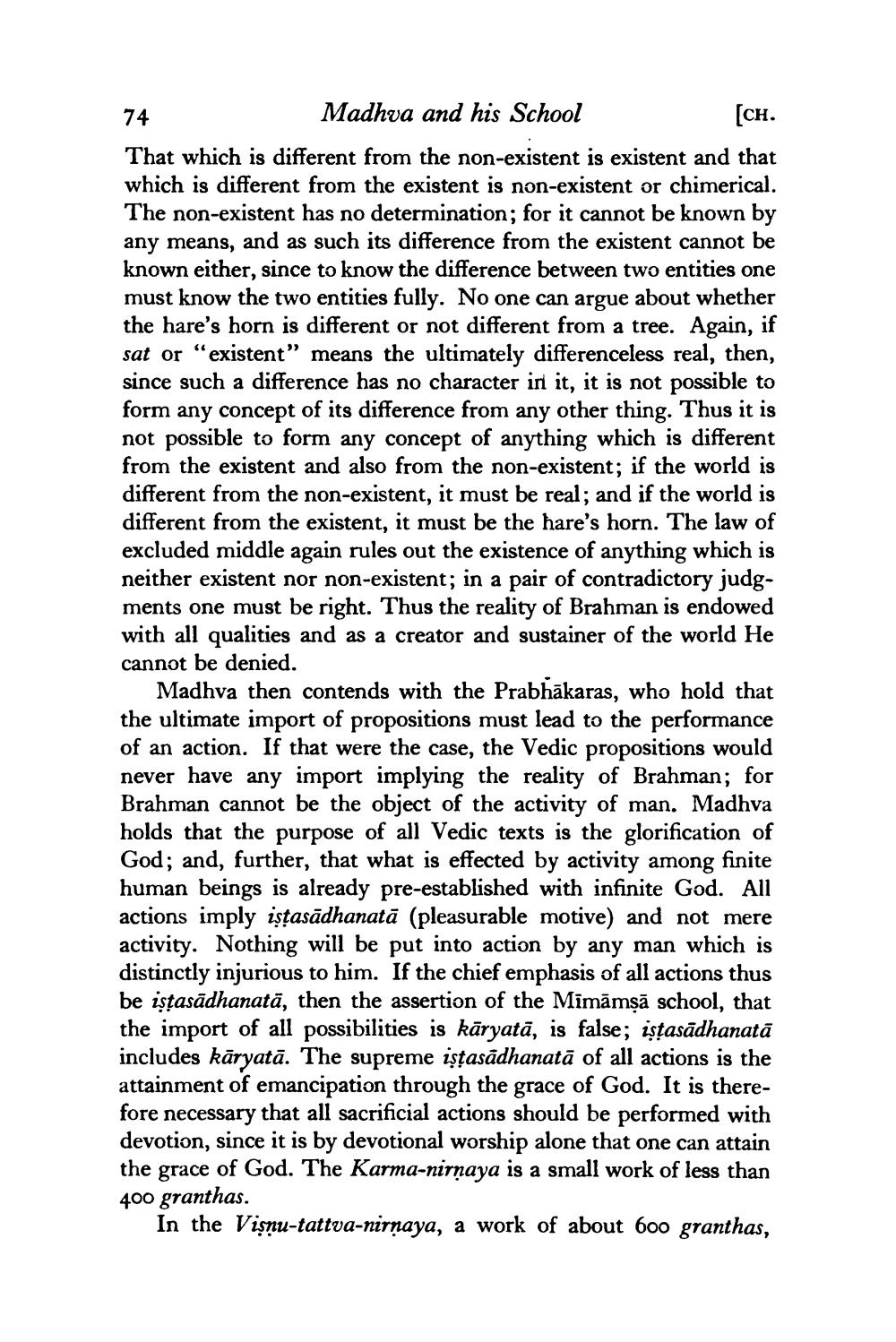________________
74
Madhva and his School
[CH.
That which is different from the non-existent is existent and that which is different from the existent is non-existent or chimerical. The non-existent has no determination; for it cannot be known by any means, and as such its difference from the existent cannot be known either, since to know the difference between two entities one must know the two entities fully. No one can argue about whether the hare's horn is different or not different from a tree. Again, if sat or "existent" means the ultimately differenceless real, then, since such a difference has no character in it, it is not possible to form any concept of its difference from any other thing. Thus it is not possible to form any concept of anything which is different from the existent and also from the non-existent; if the world is different from the non-existent, it must be real; and if the world is different from the existent, it must be the hare's horn. The law of excluded middle again rules out the existence of anything which is neither existent nor non-existent; in a pair of contradictory judgments one must be right. Thus the reality of Brahman is endowed with all qualities and as a creator and sustainer of the world He cannot be denied.
Madhva then contends with the Prabhakaras, who hold that the ultimate import of propositions must lead to the performance of an action. If that were the case, the Vedic propositions would never have any import implying the reality of Brahman; for Brahman cannot be the object of the activity of man. Madhva holds that the purpose of all Vedic texts is the glorification of God; and, further, that what is effected by activity among finite human beings is already pre-established with infinite God. All actions imply isṭasādhanatā (pleasurable motive) and not mere activity. Nothing will be put into action by any man which is distinctly injurious to him. If the chief emphasis of all actions thus be iṣṭasādhanatā, then the assertion of the Mīmāmṣā school, that the import of all possibilities is kāryatā, is false; iṣṭasādhanatā includes kāryatā. The supreme iṣṭasādhanatā of all actions is the attainment of emancipation through the grace of God. It is therefore necessary that all sacrificial actions should be performed with devotion, since it is by devotional worship alone that one can attain the grace of God. The Karma-nirnaya is a small work of less than 400 granthas.
In the Visnu-tattva-nirnaya, a work of about 600 granthas,




